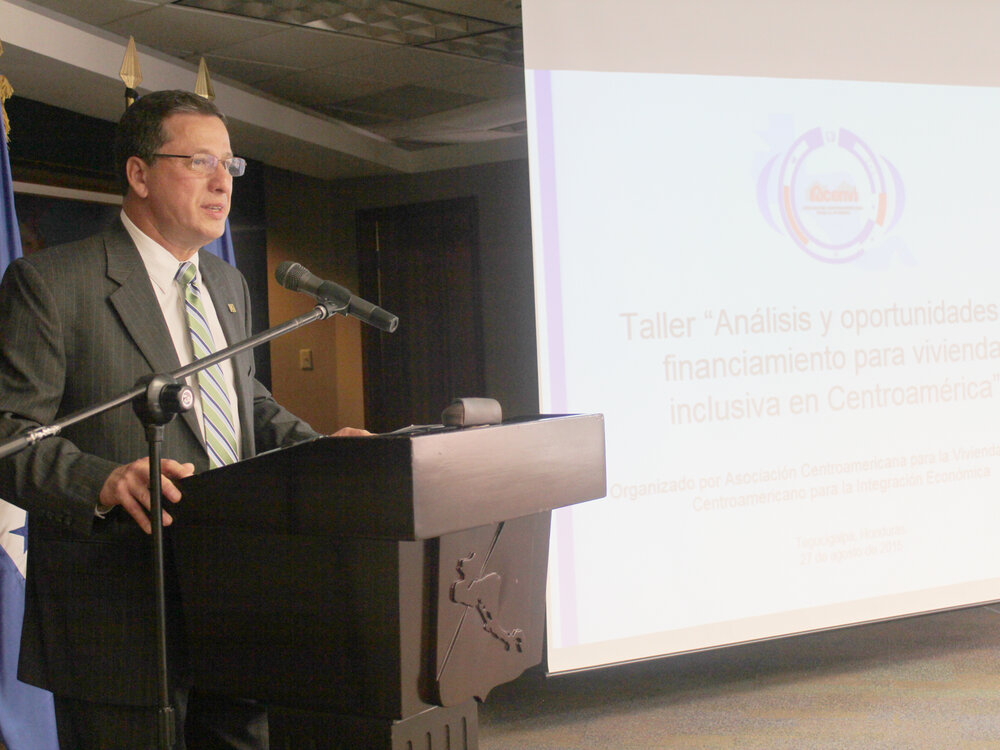CABEI committed to improving social housing in the region

CABEI's financial mechanisms facilitate housing credit to boost this sector.
Tegucigalpa, August 27, 2015. - The housing deficit presents a challenge for actors in the Central American housing sector. Despite the difficult situation, the Central American Bank for Economic Integration (CABEI) is committed to supporting the social housing sector. Since 2006, it has successfully made 258 disbursements through 32 regional financial institutions, channeling a total of US$229.2 million and benefiting a total of 49,739 low-income families with improved housing.
During a workshop called, "Analysis and financing opportunities for inclusive housing in Central America," CABEI’s Sector and Countries Manager Horacio Leiva explained that 70.3 percent of the beneficiary families had improved their current dwellings, while 10.5 percent had completely rebuilt their homes and 19.2 percent had purchased new houses.
Mr. Leiva also stated that these achievements could not have been realized without the support and confidence of the Mexican government through its Program for the Development of Social Housing in Central America in the framework of the Mesoamerica Project.
In an effort to help promote the sector, last May CABEI approved its Central American Sustainable Housing and Habitat Development Program (VIDHAS), which aims to improve the quality of life of Central Americans, provide opportunities for new financing mechanisms to foster sustainable cities and strengthen current financing mechanisms.
The workshop, which was organized jointly with the Central American Housing Association (ACENVI), was held at CABEI’s headquarters in Tegucigalpa and was attended by housing sector experts, ACENVI executives and CABEI officials and members of its Board of Directors. Its main objective was to prepare financing proposals to respond to middle-class housing problems and the specific social problems in each country.
The initiative is line with CABEI's 2015-2019 Institutional Strategy "Integrating Sustainable Development and Competitiveness," in particular with the strategic axis of Social Development, specifically with the focus area of Human Development and Social Infrastructure.







